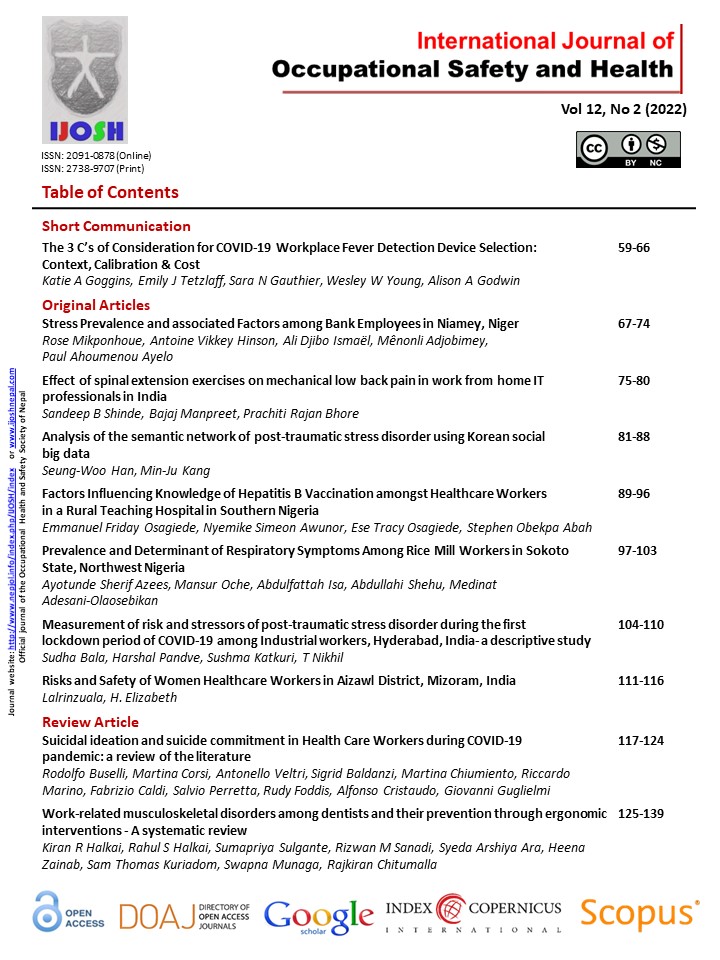Suicidal ideation and suicide commitment in Health Care Workers during COVID-19 pandemic: a review of the literature
DOI:
https://doi.org/10.3126/ijosh.v12i2.40500Keywords:
Suicidality, mental health, Health Care Workers, HCWs, SARS-COV-2, COVID-19Abstract
Introduction: Suicide represents an important public health concern since it leads to more annual deaths globally than violence, war and natural disasters combined. It is evident that during this pandemic year the phenomenon acquires even greater importance especially in the categories at risk, such as health care workers (HCWs). The aim of this review is to analyze literature evidence regarding health care providers' suicidal ideation (SI) and suicide commitment during the first year of the COVID-19 pandemic.
Methods: International databases and digital worldwide media reports were screened between March 2020 and March 2021. The authors conducted a systematic review and described evidence using a narrative approach with some focus points based on the PICO framework. Inclusion or exclusion of literature is done according to Preferred Reporting Items for Systematic reviews and Meta-Analyses (PRISMA) recommendations.
Results: What emerged is a range of SI that varies from 4 to 8% and the main risk factors seem to be loneliness, not having children and personal history of mental disorders.
Conclusion: SI, and in worst cases suicide commitment, seem mental health outcomes not to be underestimated, especially in an emergency that is protracting. They require monitoring by health surveillance systems with a goal of prevention and support.
Downloads
Downloads
Published
How to Cite
Issue
Section
License
Copyright (c) 2022 Rodolfo Buselli, Martina Corsi, Antonello Veltri, Sigrid Baldanzi, Martina Chiumiento, Riccardo Marino, Fabrizio Caldi, Salvio Perretta, Rudy Foddis, Alfonso Cristaudo, Giovanni Guglielmi

This work is licensed under a Creative Commons Attribution-NonCommercial 4.0 International License.
This license enables reusers to distribute, remix, adapt, and build upon the material in any medium or format for noncommercial purposes only, and only so long as attribution is given to the creator.





